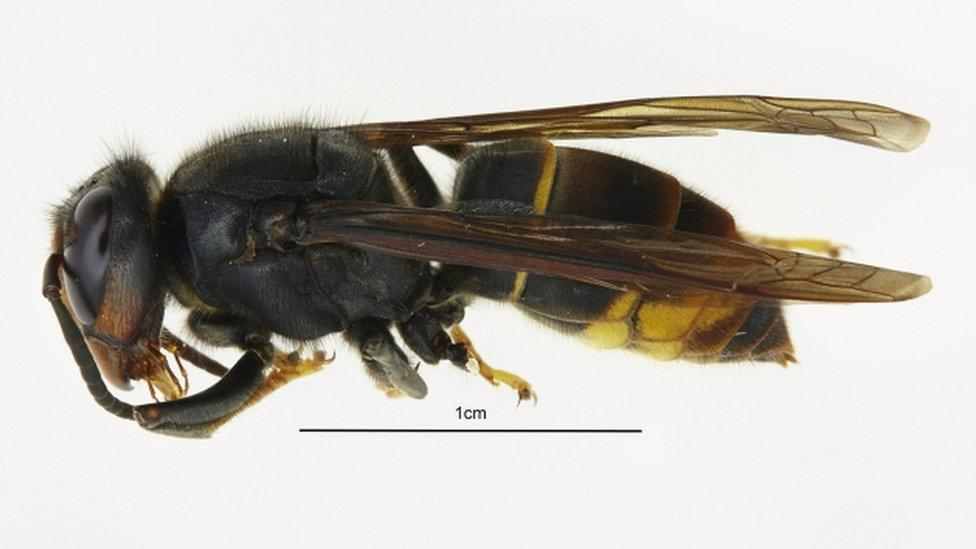'One nest' could spread Asian hornets across Britain
- Published
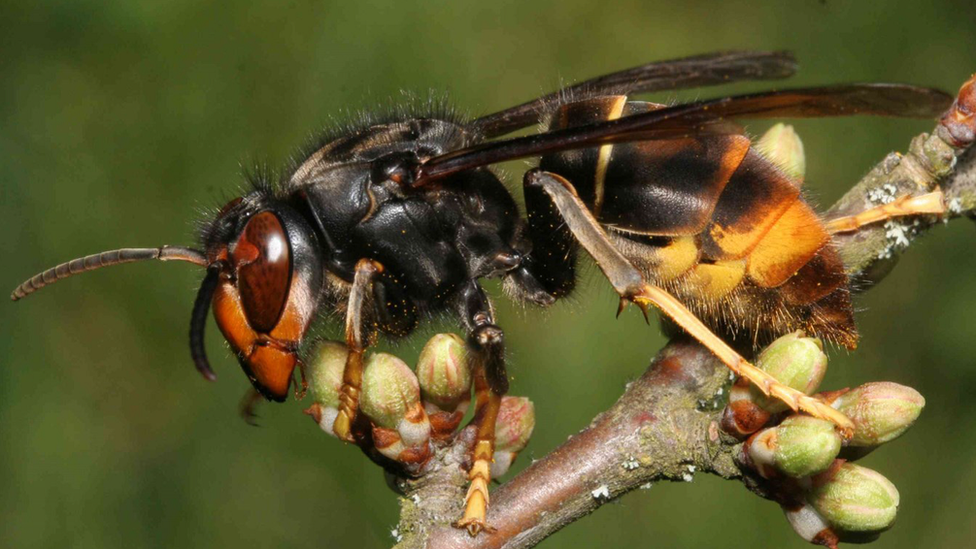
Asian hornets have spread 'exponentially' in Jersey according to the island's government
One undetected nest of bee-killing Asian hornets could establish them in England, a scientist has said.
At a meeting in Jersey, Dr Peter Kennedy said governments should "act early" to counter the threat posed by the insects.
However, he said the spread across the UK would likely be at a "lower level" than mainland Europe.
Asian hornets prey on pollinators and were recently seen in Cornwall and East Yorkshire.
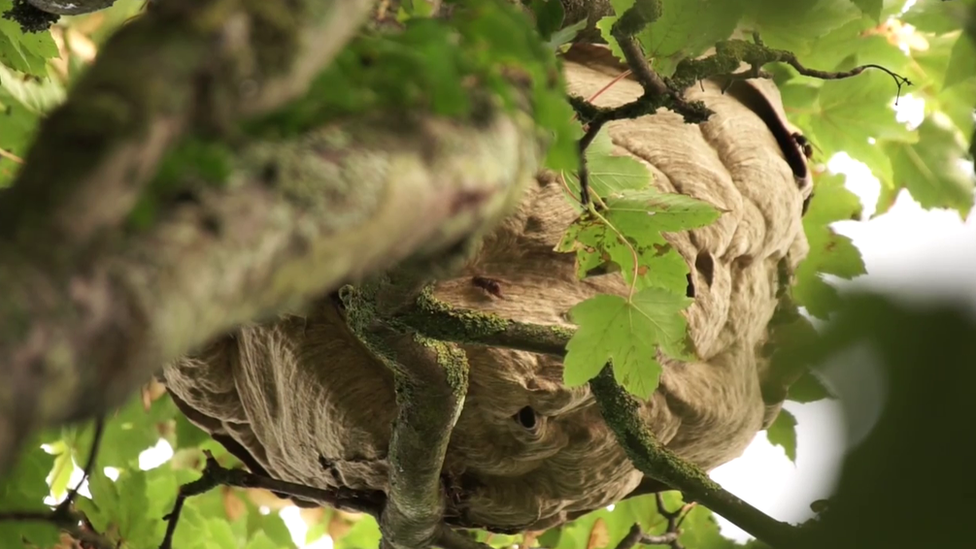
Asian hornets queens begin their life cycle by building small 'primary' nests before larger 'secondary' nests are built
"It's important that we're not complacent because it only needs one nest that's established on the mainland to multiply and things could very quickly turn into a similar situation as we have on the European mainland," Mr Kennedy said.
Since they were accidentally introduced to France in 2004, Asian hornets spread across the country into Spain and the Channel Islands.
In 2012 two nests were detected in northern Spain according to Dr Xesus Feas from the University of Santiago de Compostela. In 2016, this spread to more than 10,000, he said.
Mr Kennedy, from the University of Exeter, said mainland Britain's separation from France "may be of benefit" but, because of regular trade across the English Channel, Asian hornets would be able to travel over "on future occasions".
A spokesman from the Department for the Environment Food and Rural Affairs said Asian hornets posed "a real threat" to honey bee colonies in the UK.

Asian hornet (Vespa velutina)
Asian hornets: What's all the buzz about vespa velutina?
Queens are up to 3cm (1.2in) in length, while workers are up to 2.5cm (1in).
The hornets have a dark brown or black velvety body, bordered with a fine yellow band.
There is only one band on the hornet's abdomen, with the fourth abdominal segment almost entirely yellow or orange.
They have brown legs with yellow ends.
And they have a black head with an orange-yellow face.
Source: National Bee Unit

However, Mr Kennedy said there is a "strong suspicion" the species could have a "much wider impact" than previously thought.
"I think a lot of people focus on their impact on honey bees, but there is a wider [threat to] insect biodiversity, and there are a potential public health issues as well."
The hornets feed by hovering in front of bee and wasp hives. They intercept returning bees, bite their heads off and then eat the rest.
Experts and officials from across UK and Ireland gathered in Jersey to discuss the invading insects at the Jersey event, which was organised by the British-Irish Council.
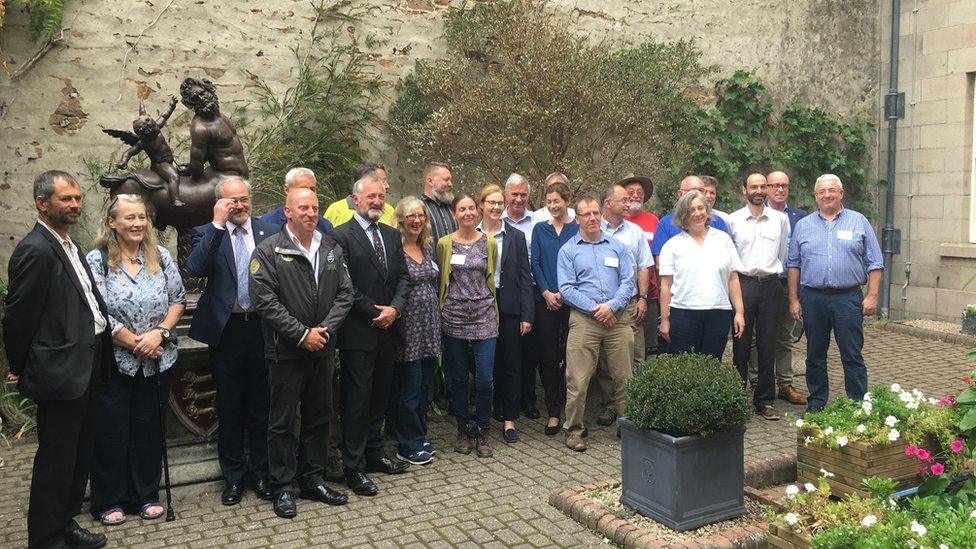
Officers from the Irish and British governments joined those from Northern Ireland, Scotland, Wales, the Isle of Man, Guernsey and Jersey.
- Published4 July 2018
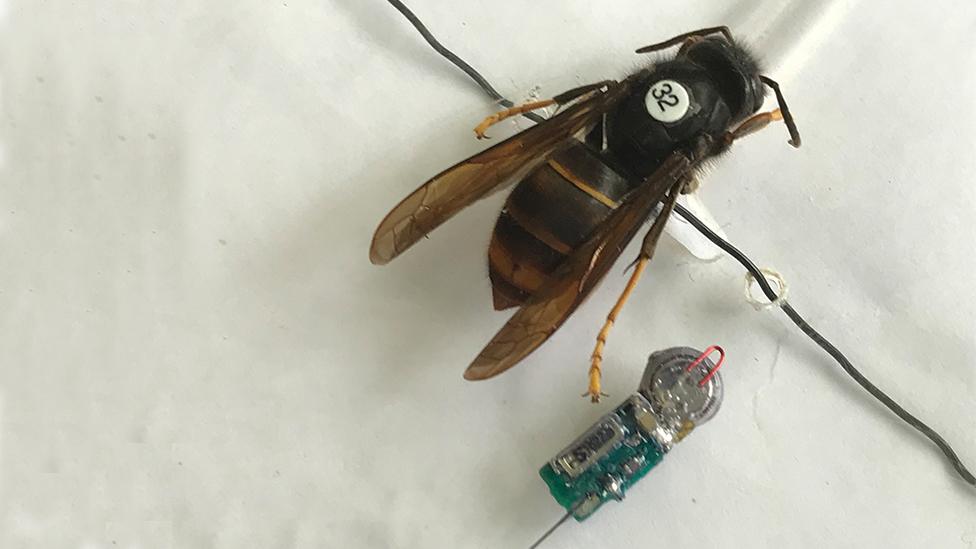
- Published4 September 2018
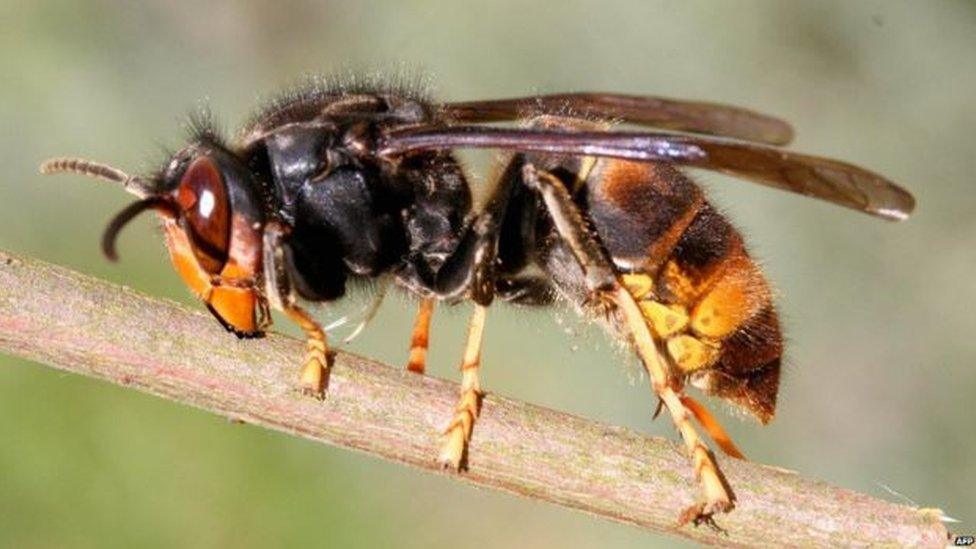
- Published14 April 2018
